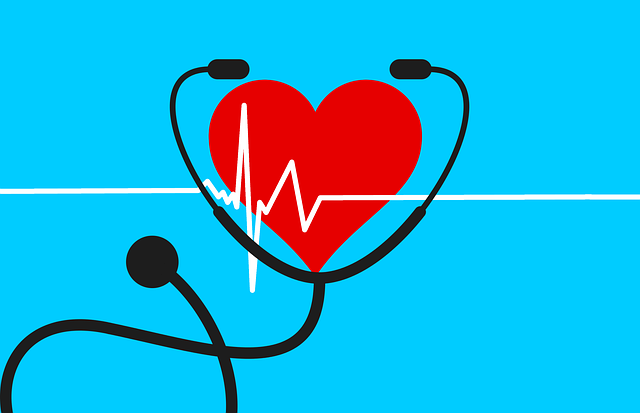A calm and focused mind starts with a balanced diet rich in whole foods, effective stress management through mindful meal planning, portion control, hydration, and limiting processed foods. Regular exercise, quality sleep, and mindfulness practices are key components of a holistic approach to a healthier lifestyle and better stress management, incorporating tips for a balanced diet advice, regular exercise routines, staying hydrated tips, and quality sleep tips.
“Unwind and embrace a calmer, more focused mind with our comprehensive guide to stress management. Discover proven techniques that intertwine nutrition, physical activity, rest, and hydration for a holistic approach to well-being. Learn how balanced diet advice, regular exercise routines, mindfulness practices, and quality sleep can significantly reduce stress levels.
From planning healthy meals and staying hydrated to cultivating mindfulness and portion control, these tips offer a roadmap to navigating life’s challenges with resilience and clarity.”
- Nutrition for a Calm Mind: Balanced Diet Advice & Healthy Meal Planning
- – Understanding the connection between diet and stress levels
- – Essential nutrients for reducing stress and improving mental focus
- – Tips for healthy meal planning to support stress management
Nutrition for a Calm Mind: Balanced Diet Advice & Healthy Meal Planning

Maintaining a calm and focused mind starts from within, and one powerful tool is through your diet. Balanced diet advice revolves around incorporating a variety of whole foods that nourish both your body and brain. Focus on tips for a healthier lifestyle by filling your plate with fruits, vegetables, lean proteins, and healthy fats. These nutrients support brain function and help regulate mood, reducing stress levels over time.
Effective stress management also involves mindful meal planning. Consider portion control strategies to avoid overeating, which can lead to energy crashes and increased stress. Stay hydrated throughout the day by drinking enough water—a simple yet often overlooked staying hydrated tip. Limit processed foods high in sugar and artificial additives, as they can disrupt your body’s natural rhythms and contribute to heightened stress. Instead, plan meals that are balanced, nutritious, and satisfying to support a calm mind and overall well-being.
– Understanding the connection between diet and stress levels

Our diet plays a surprising yet powerful role in stress management, often overshadowed by techniques like mindfulness or exercise. Consuming a balanced diet rich in fruits, vegetables, lean proteins, and whole grains can significantly impact our stress levels. These foods are packed with nutrients that support brain health, improve mood, and stabilize energy levels, helping us better cope with stressful situations. On the other hand, relying on processed foods for their convenience can lead to blood sugar spikes and crashes, leaving you feeling more stressed and fatigued.
Adopting tips for a healthier lifestyle includes staying hydrated by drinking enough water throughout the day. Regular exercise routines not only boost physical health but also act as effective stress management tools by releasing endorphins that promote relaxation and better sleep. Quality sleep is another dietary-related aspect; establishing consistent sleep patterns and incorporating healthy meal planning with portion control strategies can enhance your body’s ability to manage stress, ensuring you wake up refreshed and ready to face the day.
– Essential nutrients for reducing stress and improving mental focus

A balanced diet is an essential aspect of effective stress management and cultivating a calm mind. Certain nutrients play a crucial role in supporting mental well-being and enhancing focus. Omega-3 fatty acids, found abundantly in fish like salmon, tuna, and flaxseeds, are known for their anti-inflammatory properties, which can help reduce stress hormones. Complex carbohydrates, such as whole grains, fruits, and vegetables, provide sustained energy levels, preventing energy crashes that may contribute to stress and mental fatigue. Additionally, vitamins B6 and B12, found in lean proteins and leafy greens, support the production of neurotransmitters like serotonin, playing a vital role in mood regulation and cognitive function.
Incorporating regular exercise routines into your tips for a healthier lifestyle is another powerful strategy. Physical activity stimulates the release of endorphins, natural stress relievers that promote a sense of calm and well-being. Aim for at least 30 minutes of moderate-intensity exercise most days of the week. Staying hydrated is also key; water is essential for optimal brain function, and proper hydration can enhance mental clarity and focus. Avoid processed foods high in sugar and unhealthy fats, as they can lead to energy spikes and crashes, ultimately affecting your ability to manage stress effectively. Instead, opt for whole, unprocessed foods that support both physical and mental health.
– Tips for healthy meal planning to support stress management

Maintaining a calm and focused mind starts with adopting healthy habits that extend beyond mindfulness practices. Healthy meal planning is a powerful tool in your stress management arsenal. Opting for balanced diet advice that includes plenty of fruits, vegetables, lean proteins, and whole grains can significantly impact your well-being. These foods are packed with nutrients essential for optimal brain function and mood regulation.
Implement portion control strategies to avoid overeating, which can increase stress levels. Moreover, make it a point to stay hydrated by drinking enough water throughout the day; dehydration can lead to fatigue and irritability. Regular exercise routines, even brief periods of physical activity, release endorphins that promote relaxation and combat stress. Finally, remember to avoid processed foods high in sugars and unhealthy fats, as they can exacerbate mood swings and hinder your ability to manage stress effectively.
By incorporating these stress management techniques—from balanced diet advice and healthy meal planning to regular exercise routines, staying hydrated tips, and mindfulness practices—into your daily life, you can cultivate a sense of calm and improve your mental focus. Remember that quality sleep is also vital for overall well-being, so be sure to prioritize rest as much as nutrition. With these tips for a healthier lifestyle in mind, you’re well on your way to creating a more balanced and stress-free existence.
